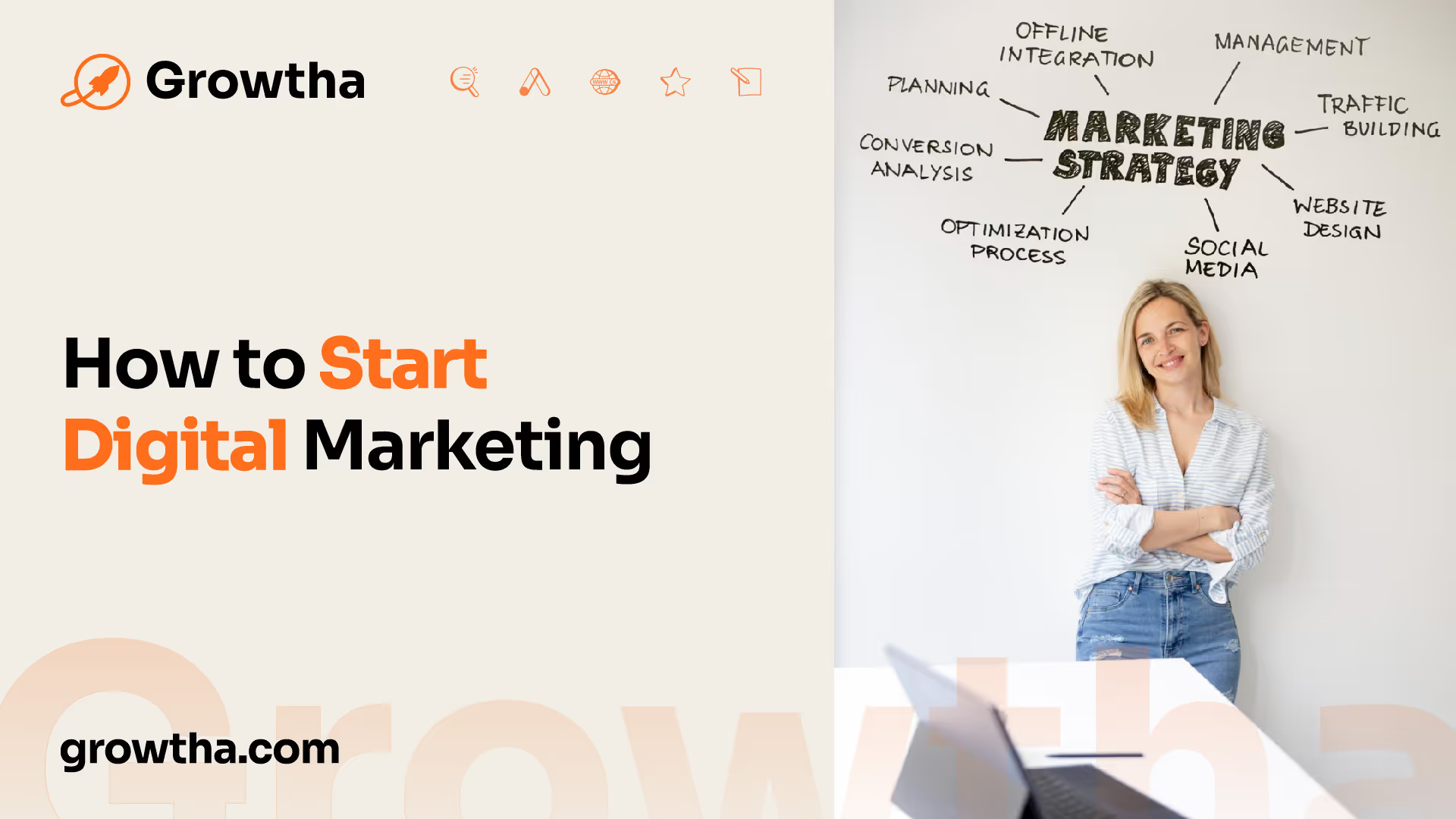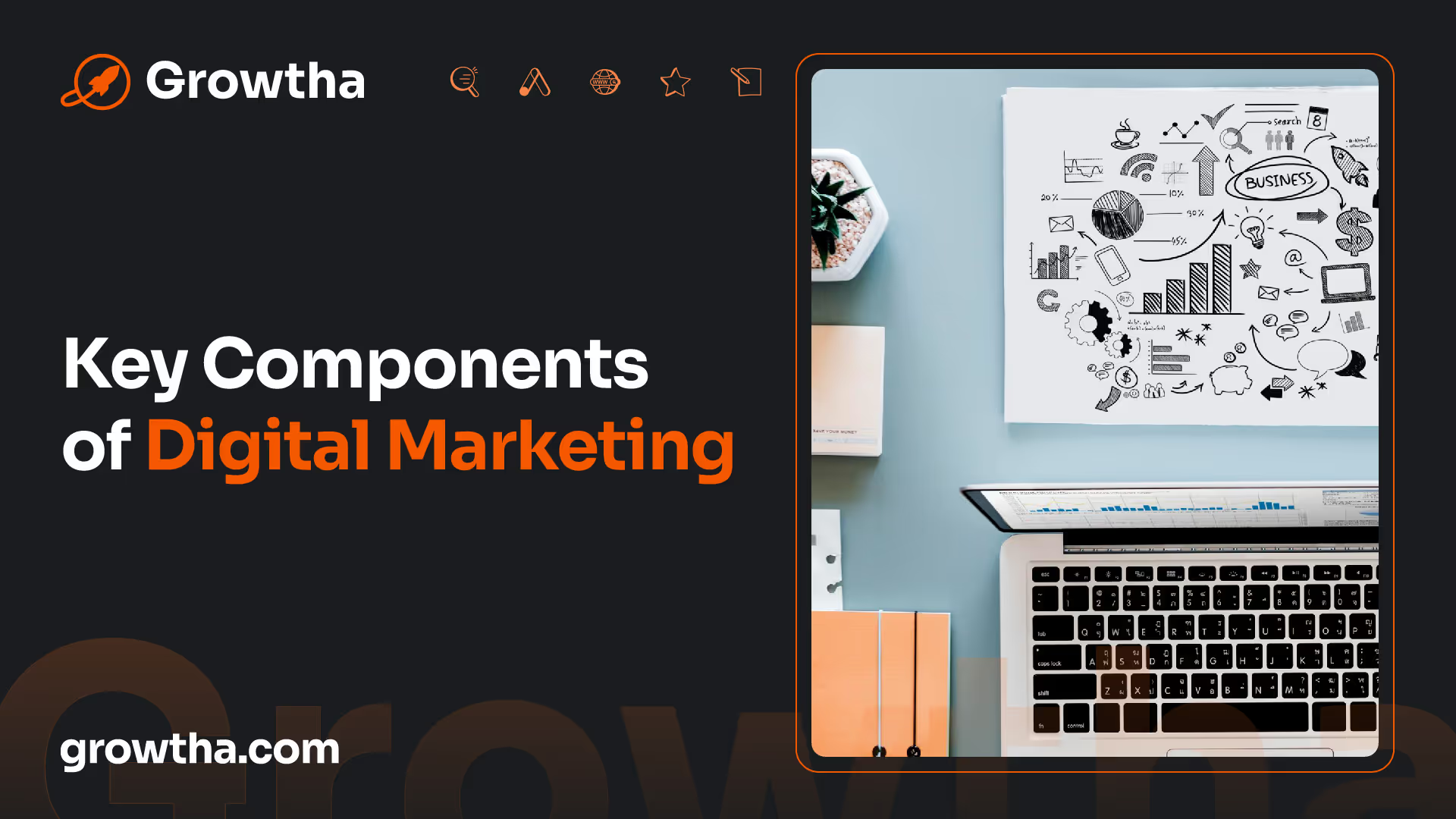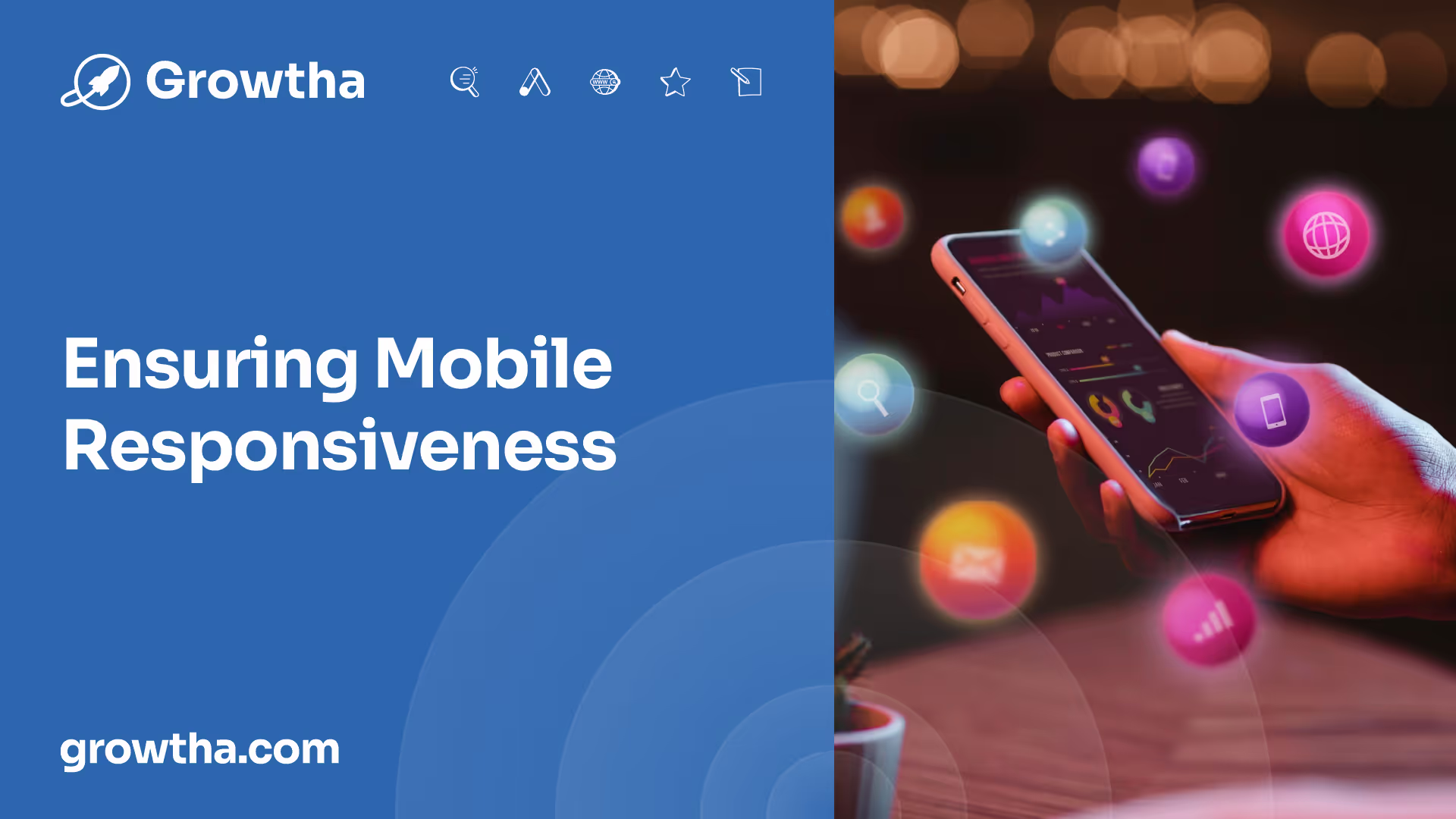How to Start Digital Marketing
It is essential to understand the importance of Search Engine Optimization (SEO) and grasp the key components that make up a successful digital marketing strategy.


How to Start Digital Marketing
Getting Started with Digital Marketing
To venture into the world of digital marketing, it is essential to understand the importance of Search Engine Optimization (SEO) and grasp the key components that make up a successful digital marketing strategy.
Importance of SEO in Digital Marketing
SEO plays a pivotal role in digital marketing, as it enhances a website's visibility, driving increased traffic and providing more opportunities to convert prospects into customers. The benefits of SEO extend beyond visibility, as it also contributes to brand awareness, builds relationships with prospects, and establishes authority in the field.
To leverage the power of SEO, it is crucial to conduct thorough keyword research and strategically use well-researched keywords throughout your content. Keywords can be short-tail, long-tail, or local keywords that are optimized in titles, URLs, and other on-page SEO elements. By carefully choosing and strategically incorporating keywords, you can improve your website's ranking in search engine results, making it more discoverable by your target audience.
Quality content is another vital component of SEO. Educational, interesting, relevant, and shareable content helps to engage audiences, build relationships, and drive conversions. By consistently producing valuable content, you can attract and retain the attention of your target audience, ultimately increasing your website's visibility and authority [1].
In addition to on-page optimization, off-page SEO techniques play a significant role in improving your website's ranking. Backlink building, for example, is a crucial aspect of off-page SEO. By securing high-quality backlinks from reputable websites through guest blogging, creating infographics, or utilizing influencer marketing, you can signal to search engines the value and quality of your site [1].
For businesses with a local presence, local SEO is of utmost importance. With the rise of mobile searches, optimizing your website for local queries becomes crucial. Implementing local keywords, claiming directory listings, creating location-specific pages, and utilizing platforms like Google My Business are essential practices to ensure your business appears prominently in local search results.

Key Components of Digital Marketing
Digital marketing encompasses various components that work together to create a comprehensive strategy. Some key components to consider include:
- Search Engine Optimization (SEO): As discussed above, SEO is crucial for improving your website's visibility and attracting organic traffic. By optimizing your website's content, structure, and online presence, you can enhance your ranking in search engine results pages (SERPs) and drive more targeted traffic to your site.
- Content Marketing: Content marketing involves creating and distributing valuable, relevant, and consistent content to attract and engage your target audience. Through content creation, you can establish your brand's expertise, build trust with your audience, and drive conversions.
- Social Media Marketing: Social media platforms provide an avenue to reach and engage with your audience on a personal level. By creating compelling content, fostering conversations, and leveraging social media advertising, you can build brand awareness, drive website traffic, and generate leads.
- Email Marketing: Email marketing allows you to directly communicate with your audience and nurture relationships. By crafting personalized and targeted email campaigns, you can drive engagement, promote your products or services, and generate conversions.
- Digital Advertising: Digital advertising encompasses various channels, including search engine advertising, display advertising, and social media advertising. By strategically placing ads, you can increase brand visibility, target specific demographics, and drive traffic to your website.
By understanding and integrating these key components into your digital marketing strategy, you can effectively reach and connect with your target audience, drive engagement, and achieve your marketing goals.
Digital Marketing Strategies
To kickstart your digital marketing journey, it is essential to develop effective strategies that will help you achieve your business goals. By crafting a comprehensive plan, setting SMART goals, and ensuring mobile responsiveness, you can lay a strong foundation for your digital marketing efforts.
Crafting a Comprehensive Plan
Crafting a digital marketing plan is imperative to thrive in the digital realm. This involves seamlessly blending traditional marketing principles with impactful digital strategies. By leveraging techniques such as search engine optimization (SEO), digital advertising, and engaging content creation, you can drive organic traffic to your website and improve search engine rankings [2]. Here are some key aspects to consider when crafting your plan:
- Perform comprehensive market research to understand your ideal customer profile, competitors, and market expectations for your industry. This will help you determine your business goals.
- Identify the most effective digital marketing channels and tactics for your target audience. This may include search engine marketing, social media marketing, content marketing, email marketing, and more.
- Create a content strategy that aligns with your brand and target audience. Develop engaging and valuable content that addresses the needs and pain points of your target audience.
- Establish a budget for your digital marketing activities and allocate resources accordingly.
- Set key performance indicators (KPIs) to measure the success of your digital marketing efforts. This can include metrics such as website traffic, conversions, engagement, and ROI.
Setting SMART Goals
To guide your digital marketing strategy and measure progress, it is crucial to establish SMART goals. SMART is an acronym that stands for Specific, Measurable, Achievable, Relevant, and Time-bound. This goal-setting method ensures that your goals are well-defined and actionable [2]. Here's a breakdown of each element:
- Specific: Clearly define what you want to achieve. For example, instead of setting a vague goal like "increase website traffic," specify "increase website traffic by 20% within six months."
- Measurable: Ensure that your goals can be quantified and measured. Use metrics like website visits, conversions, or social media engagement to track progress.
- Achievable: Set goals that are realistic and attainable. Consider your available resources, budget, and market conditions.
- Relevant: Align your goals with your overall business objectives. Ensure that they contribute to the growth and success of your organization.
- Time-bound: Set a specific timeframe for achieving your goals. This adds a sense of urgency and helps you stay focused on your objectives.

Ensuring Mobile Responsiveness
With the increasing number of people interacting with brands through smartphones and tablets, it is crucial to ensure a consistent and responsive experience across all devices. Your website, content, and social media should be easily accessible and user-friendly on mobile devices [2]. Consider the following tips for optimizing mobile responsiveness:
- Implement a responsive web design that adapts to different screen sizes and resolutions.
- Optimize website loading speed for mobile devices to provide a seamless user experience.
- Use mobile-friendly formats for content, such as shorter paragraphs, bullet points, and clear headings.
- Ensure that all elements, including images, videos, and forms, are properly displayed and functional on mobile devices.
- Test your website and content across various mobile devices and operating systems to ensure consistent performance.
By crafting a comprehensive plan, setting SMART goals, and ensuring mobile responsiveness, you can establish a strong foundation for your digital marketing strategies. These elements are essential for effectively reaching your target audience, increasing brand visibility, and driving meaningful results in the digital landscape.
Leveraging Email Marketing
In the world of digital marketing, email marketing remains a powerful tool for reaching and engaging with your target audience. This section will explore the benefits of email campaigns and the importance of integrating email with social media.
Benefits of Email Campaigns
Email marketing continues to deliver a significant return on investment (ROI), making it an essential component of any digital marketing strategy. According to Campaign Monitor, businesses experience an average ROI of $39.40 for every dollar spent on email marketing, compared to $12.90 for every dollar spent on social media advertising. The numbers speak for themselves, highlighting the effectiveness of email campaigns in driving results.
Email marketing generates a high ROI due to several factors. First, email campaigns allow for personalized and targeted messaging, ensuring that the right message reaches the right audience at the right time. This level of customization increases the likelihood of engagement and conversions. Second, email marketing enables businesses to nurture relationships with their audience by delivering valuable content, promotions, and updates directly to their inbox. This ongoing communication fosters trust and loyalty.
Furthermore, email marketing has been found to be 40 times more effective at acquiring new customers than social media Roopco. By capturing email addresses across various channels, marketers gain invaluable insights that inform their mobile, social media, and in-store strategies. It opens up opportunities for behavioral targeting, tracking click data, and enhancing customer acquisition and retention MAKE Digital Group.
Integrating Email and Social Media
To maximize the impact and reach of your digital marketing efforts, it's crucial to integrate email marketing with other channels, particularly social media. By combining these two powerful platforms, you can significantly enhance engagement, increase brand visibility, and drive conversions.
Integrating email and social media allows for cross-promotion and synergy between the two channels. You can leverage your email list to increase your social media following, and vice versa. For example, you can include social media icons and links in your email campaigns, encouraging recipients to connect with your brand on various social platforms. This expands your reach and creates opportunities for broader engagement.
Moreover, integrating email and social media provides a cohesive brand experience for your audience. Consistent messaging and branding across both channels reinforce your brand identity and build recognition. By aligning your email marketing content with your social media posts, you create a seamless and unified customer journey.
Another effective strategy is to use your social media platforms to grow your email list. Promote exclusive content or offers that can only be accessed by subscribing to your email newsletter. By enticing your social media followers with valuable incentives, you can drive them to join your email community, leading to increased engagement and conversions.
In conclusion, leveraging email marketing offers numerous benefits in terms of ROI, personalization, and customer engagement. By integrating email with social media, you can amplify the impact of your digital marketing efforts, expand your reach, and create a cohesive brand experience. Take advantage of the synergy between these two channels to build strong relationships with your audience and drive meaningful results.
Utilizing Digital Analytics Tools
In the realm of digital marketing, the effective use of digital analytics tools is crucial for understanding customer behavior and optimizing online initiatives. Digital analytics involves gathering, analyzing, and interpreting data from digital sources to gain insights into how people interact with websites and identify areas for improvement to boost conversions.
Understanding Digital Analytics
Digital analytics is the practice of collecting and analyzing data from various digital sources to gain a deeper understanding of customer behavior. These insights help marketers make data-driven decisions to enhance their digital marketing strategies. By utilizing digital analytics tools, businesses can track key metrics such as website traffic, user engagement, conversion rates, and more.
Digital analytics tools provide a wealth of information, including:
- User demographics: Insights into the characteristics of website visitors, such as age, gender, location, and interests.
- User behavior: Understanding how users navigate through the website, which pages they visit, and how much time they spend on each page.
- Conversion tracking: Monitoring the effectiveness of marketing campaigns and identifying areas for improvement to increase conversions.
- Traffic sources: Identifying the channels through which users find the website, such as organic search, social media, or paid advertising.
- Device and browser information: Understanding the devices and browsers used by visitors to optimize website compatibility and user experience.
By gaining a comprehensive understanding of digital analytics, marketers can make informed decisions to optimize their digital marketing efforts and improve overall performance.
Popular Digital Analytics Platforms
There are several digital analytics platforms available to marketers, each offering unique features and capabilities. Two popular platforms in the industry are Google Analytics and Adobe Analytics.
Google Analytics
Google Analytics is a widely used self-service business intelligence platform that provides valuable insights into website performance. It offers free access to data visualization features, allowing marketers to understand their target audience, their behavior on the website or app, and how they arrived there. With Google Analytics, marketers can track key metrics, set up conversion goals, and create customized reports to monitor website performance.
Adobe Analytics
Adobe Analytics is a comprehensive marketing attribution software that helps businesses measure the impact of their customer interactions. It provides a range of tools, including web analytics, marketing analytics, attribution, predictive analytics, multichannel data collection, and more. With Adobe Analytics, marketers can gain a deep understanding of customer behavior, identify trends, and optimize marketing strategies to drive better results.
Other digital analytics tools, such as FullStory, offer advanced features like session replay, heatmaps, and conversion funnels. These tools provide valuable insights into customer behavior and allow businesses to optimize their online initiatives based on real user experiences.
By leveraging digital analytics tools like Google Analytics, Adobe Analytics, or FullStory, marketers can gain valuable insights into customer behavior, drive data-driven decision-making, and optimize their digital marketing strategies for better results.
Enhancing Brand Awareness
In the realm of digital marketing, enhancing brand awareness is a key objective for businesses. Two effective strategies for achieving this are harnessing the impact of social media and building credibility with user-generated content.
Impact of Social Media
Social media platforms such as Facebook, Instagram, Twitter, and LinkedIn play a significant role in increasing brand awareness. With millions of active users, these platforms provide businesses with a vast audience to promote their products and services.
Through targeted advertising on social media, businesses can reach specific groups of people accurately. This targeted approach reduces advertising costs compared to traditional methods like television or radio ads [4]. By leveraging the power of social media, companies can create engaging content, run contests, and interact with their audience to foster brand loyalty and recognition.
Incorporating social media into a digital marketing strategy can also increase website traffic. By sharing links to blog posts, product pages, and landing pages, businesses can drive more visitors to their website, expanding their online presence [4]. Additionally, social media signals such as likes, shares, and comments positively impact search engine rankings, enhancing visibility in search engine results pages.
Building Credibility with User-Generated Content
User-generated content (UGC) plays a vital role in building credibility for businesses. UGC includes reviews, testimonials, and customer stories, which are highly trusted by consumers. People tend to rely on recommendations from friends and family more than direct company promotions.
By encouraging customers to share their experiences and opinions about products or services, businesses can leverage UGC to demonstrate the value and quality of their offerings. This word-of-mouth marketing contributes to building trust and credibility among potential customers.
To harness the power of UGC, businesses can actively seek customer feedback, engage with customers on social media, and provide platforms for customers to share their experiences. Sharing positive UGC on social media and company websites can further enhance brand reputation and credibility.
By utilizing social media platforms and user-generated content, businesses can effectively enhance brand awareness in the digital landscape. These strategies allow companies to reach a wider audience, establish credibility, and foster meaningful connections with their target market.
References
[1]: https://digitalmarketinginstitute.com/blog/what-is-seo-and-why-is-it-important
[2]: https://www.wsiworld.com/blog/6-essential-elements-successful-digital-marketing-strategy
[3]: https://www.fullstory.com/blog/digital-analytics-tools/
[4]: https://knowledgeenthusiast.com/2023/03/08/the-link-between-social-media-and-digital-marketing/







